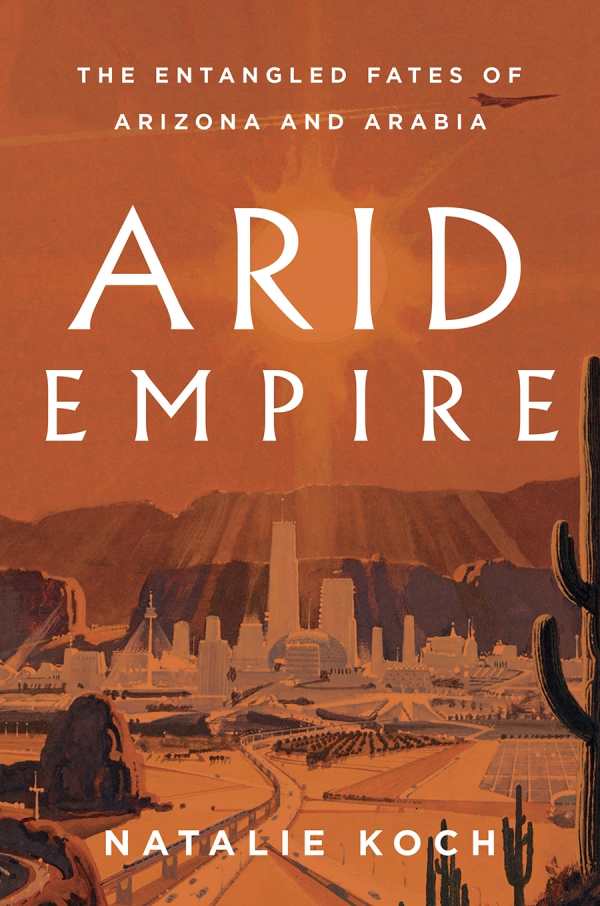Arid Empire
The Entangled Fates of Arizona and Arabia
In the mid-nineteenth century, the expanding United States worked to colonize the territory that’s now Arizona. To do so, it turned to the Middle East for expertise, inspiration, and camels. Natalie Koch’s Arid Empire shows how this colonial project came to set the course for the future state of Arizona and for the United States’s relationship with the Middle East.
Hi Jolly, a Syrian camel driver, becomes “a central figure” in this story of “the American quest to colonize the Arizona desert” after the US Army and future Confederate president Jefferson Davis decided that camels could serve as both beasts of burden and weapons of war against the Indigenous people living in the Southwest. While the camels didn’t last, other Middle Eastern imports did. The United States established a date industry in the Southwest with transplanted palms and expertise, and the growth of the state’s university system was intertwined with the plan to grow, perfect, and export dates—including to Oman, which had grown them all along.
These stories mark a long historical relationship between Arizona and the nations of the Arabian peninsula. Koch examines agricultural exchanges that continue into the present, the US’s attempts to “modernize” the Middle East in the decolonization period after World War II, and the ways in which these dual desert societies inspired science fiction landscapes. She makes use of a strong mix of historical documents and contemporaneous news reports, shared alongside dozens of fascinating images, including nineteenth-century posters recruiting settlers and of lasting monuments to Hi Jolly and other participants in the Arizona experiment.
Arid Empire is a surprising history book about the centuries-old cyclical relationship between two deserts half a world away from each other—and their continued mutual influence.
Reviewed by
Jeff Fleischer
Disclosure: This article is not an endorsement, but a review. The publisher of this book provided free copies of the book to have their book reviewed by a professional reviewer. No fee was paid by the publisher for this review. Foreword Reviews only recommends books that we love. Foreword Magazine, Inc. is disclosing this in accordance with the Federal Trade Commission’s 16 CFR, Part 255.

